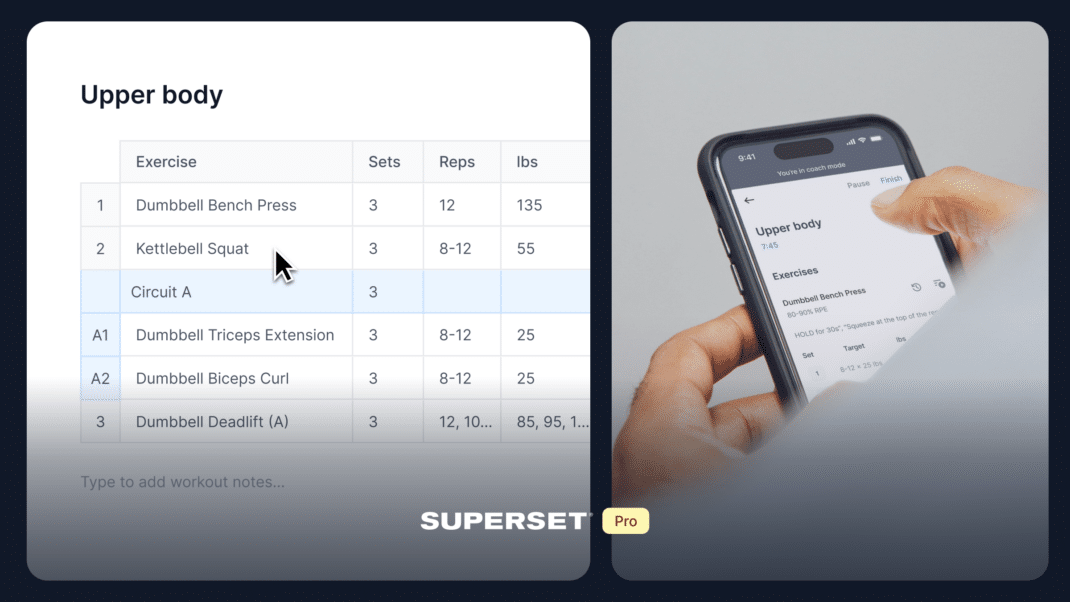Sponsored Content
4 Genetic Profiles That Influence Fitness Results
Help your clients know about their genetic disposition and build the programming specifically tailored for them.

For years, fitness professionals have had to combat genetic rationales that clients use to justify why they can’t achieve their goals. The explanations range from “Everyone in my family is overweight; it’s just in my genes” to “Athleticism just isn’t in my DNA.”
For the most part, fit pros have had no choice but to accept these excuses because, truthfully, how could they argue? Disciplined trainers and instructors might challenge their clients, suggesting that outcomes are due to lack of compliance, but either way, could pros really prove otherwise?
Similarly, when clients make sincere efforts and still don’t reach their goals, their attention may turn to the biological cards they were dealt. But what if the program they’re following simply isn’t suited to their genetic makeup?
The truth is, yes, DNA can affect client performance and results. There are correlations between specific genetic profiles and how the body responds to fitness and nutrition. But more often than not, with compliance plus an exercise and nutrition program uniquely tailored to a client’s particular needs, results happen.
Genetic testing for diagnostic or heritage purposes is making its way into the mainstream. It’s also finding its way into the fitness and nutrition industry. Here are specific genetic markers that every trainer, instructor and client should care about.
Weight Loss Tendency
This genetic profile indicates how likely it will be for a person to lose weight with standard dieting and exercise tactics. Those who score unfavorably for this profile can still lose weight; they just need to be more diligent with their compliance and expect to put in extra effort.
Fat Loss Response to Cardio
Stored body fat can be used as fuel during cardio activity. But how quickly is the body going to use this fuel? A client’s genetic profile can play a role in this process. Those with a favorable profile will use stored fat more readily. Those with a normal or less favorable genotype can still access stored body fat with cardio; it just takes them a bit longer. This could help determine the choice between 30-minute versus 60-minute cardio sessions.
Intrinsic Motivation to Exercise
Some people love to work out for the sake of working out. They have intrinsic motivation. Clients who don’t find immediate enjoyment in exercise shouldn’t feel embarrassed. It could very likely be part of their DNA. In this case, clients have the opportunity to accept this information and incorporate more motivation into their fitness regimen—for example, by participating in fun runs, attending group fitness classes or entering weight loss competitions.
Protein Utilization
Trending diets exist for a reason. They work for some people! This means they’ll never fully go away. It also means certain clients might respond more favorably to popular eating styles than others. Individuals who have a genetic profile showing enhanced protein utilization, for example, are more efficient at using this macronutrient—for building, reparation and energy—and therefore will most likely see greater weight loss in following one of the high-protein diets that are currently trending.
As fitness professionals, we know small feats can add up to make a big difference. Consider the impact that wearable technology has had on our clients’ success by simply helping them add more steps here and there each day. Genetic testing in health and fitness is making the same splash, and you can use this knowledge to customize your programming for better client success and retention.
The genetic traits mentioned here are just four of 36 traits the International Sports Sciences Association tests when certifying fitness and nutrition professionals in their new DNA-Based Fitness Coach course. In this groundbreaking course, trainers and nutritionists can learn about the genetic markers adding up to big results or big misses. It allows them to take the guesswork out of program design and find real solutions for the unique needs of all clients.
https://www.issaonline.com/certification/dna-based-fitness-coach/





